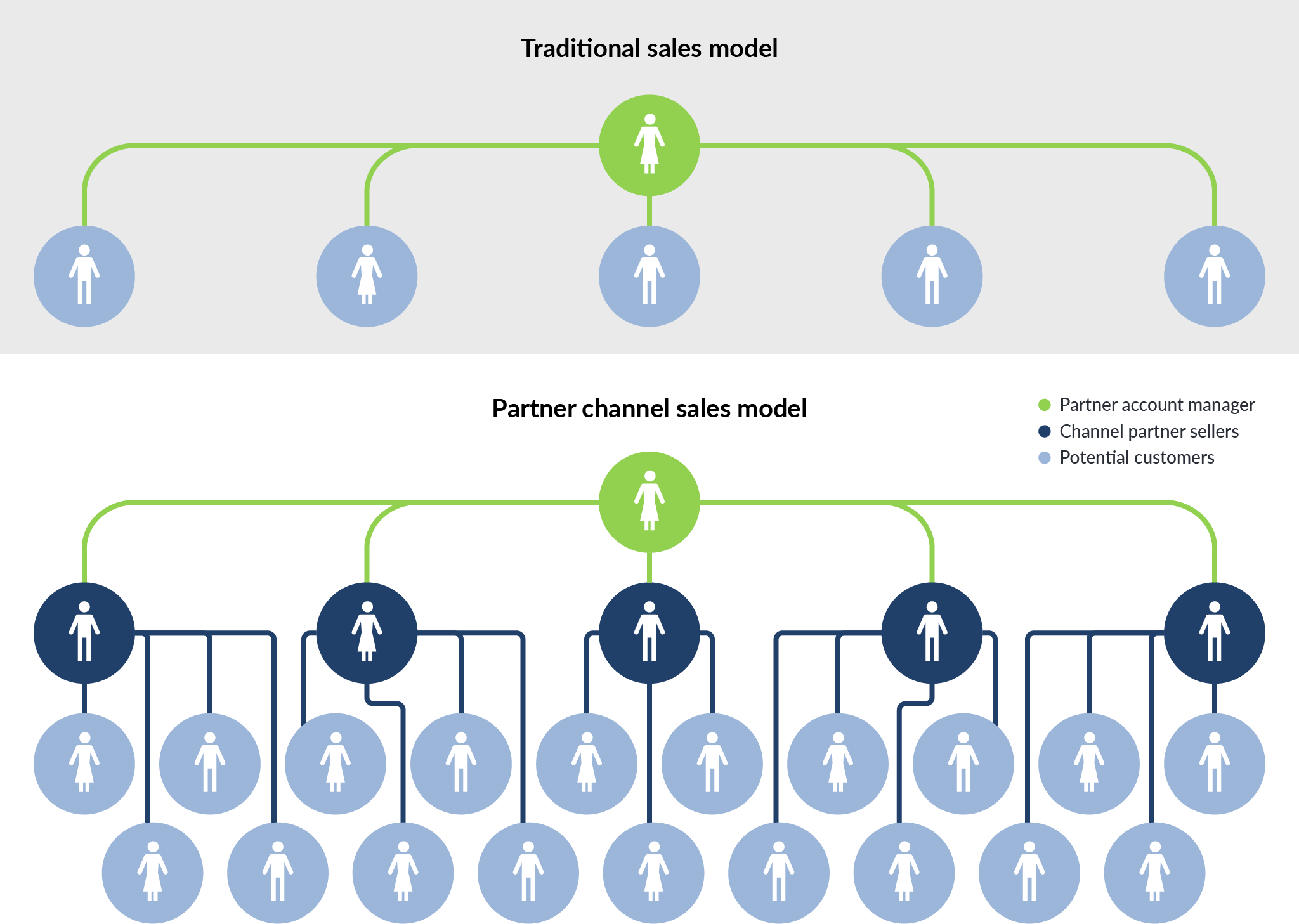Full transparency: Not to date myself, but I’ve been building partner channel marketing and sales programs since before Compaq Computers was acquired by Hewlett-Packard (prior to being known as HP, which was prior to it being known as HPE) … which was also before cloud computing transformed the enterprise server business. And I do mean long before.
So, you could say I have some experience in this area, and I have to tell you … channel partner marketing and sales strategies are not new. Regardless of how you refer to them … Alliance Partners … Channel Partners … Strategic Partners … Scale Partners … Value-Added Partners … Co-Marketing Partners … Co-Selling Partners … the concept is the same—develop relationships with partners that have a complementary product, service, solution, or support offering; scale your marketing and sales efforts to increase customer reach and ultimately drive revenue. Exponentially.
Seems simple enough, right? Well, I think so. But, as it turns out, sometimes when you are in the middle of something for so long, it’s difficult to see what it looks like from the outside.
So, with the recent explosion of SaaS-ready solutions being hosted on PaaS-enabled marketplaces, built on top of cloud-based IaaS frameworks, the market is ripe for partnerships between solution and service providers. Now, you hear the term “channel partner” popping up more than ever before.
Yet, there is a disconnect between the number of companies looking for partner channel expertise and the amount of guidance available to help partner channel roles develop such expertise. In fact, a quick search on Glassdoor for jobs with “partner channel” in the title reveals 136 available roles in Seattle, 226 in the San Francisco Bay Area, and another 260 in New York—actively available today and in need of experts. Meanwhile, a quick search for “partner channel” online reveals thought leadership circa 2010–2013, with little current or relevant insight available. Thus, this blog.
Let us begin by exploring what a partner channel is and why it is important …
Marketing and sales at scale
Simply put, a partner channel enables you to reach more customers and increase your revenue across a broader market than you can reach without partners.

For example, if one sales representative can successfully connect with five potential customers per day in a meaningful way, then the reach of one of your employees is five customers per day. Whereas, if one partner account manager can successfully connect with five channel partners per day in a meaningful way, and each of those partner sellers can successfully connect with five potential customers per day in a meaningful way, then the reach of one of your employees is 25 potential customers per day. By transforming from a direct (to-customer) sales model to an indirect (to-/through-partner) sales model, you have the potential to increase your customer reach and ultimately, revenue, exponentially.
The trick is in the transformation. You will see that your employee in the traditional model is a customer sales representative, whereas your employee in the partner channel model is a partner account manager. While both roles are responsible for representing your product, service, or solution offerings to customers, the approach is different. It requires transforming your current sales reps into partner-facing account managers who can help your partners build their practices, develop marketing campaigns and events, and drive opportunities to close with partners. In some cases, you may even hire new talent with a focus on partner enablement. Likewise, your internal tools and systems will probably require an overhaul to make them work for your partner channel—to ensure leads are captured, nurtured, engaged, and closed in alignment with your partner sales plans and processes.
Customer engagement at scale
By partnering with a broad portfolio of channel partners, you can reach more customers across more markets and demographics. Imagine taking the solution you just developed (in your garage with your college roommate) to market around the globe—with sellers fluent in local languages and local customs. Imagine working with partners that have complementary solutions or services that could position your solution in the healthcare industry, or financial services, or retail—or maybe all three. Imagine working with partners that have a globally distributed sales force with solution and industry expertise who also partner with global systems integrators that could deploy your solution to thousands of users instantaneously.
Services and support at scale—a cautionary tale
The old adage “if you build it, they will come” rings especially true in the partner channel. Before engaging with a channel partner and launching a joint marketing campaign, it is important that you are crystal clear on your partnership from start to finish. What happens if your partner launches a campaign that generates so many sales that your team cannot possibly service or support the influx of customers? What if you cannot even train new service and support roles fast enough to serve the customers? Early on, this might seem like an impossible scenario, and frankly, a good problem to have.
Let me assure you … it is not. Because, customers without proper service and support are not happy customers, and happy customers are imperative to your success. And, if you are unable to provide the service or support your solution needs, your unhappy customers will turn to the partner that sold them the solution, and now you will have unhappy customers AND unhappy partners—neither of which are advantageous to your revenue success. Be sure you are prepared to service and support all potential customers or develop a plan with your channel partners to provide the required services and support resources—ensuring everyone is properly trained and ready BEFORE the campaign launches.
Partner channel benefits
Well … if the exponential revenue described above isn’t enough of a reason to build a partner channel, consider the networking opportunities of working with solution and service providers—the access to resources, events, speaking engagements, and industry experts well versed in solutions like yours. Consider the collaborative opportunities to work with partner experts to improve or expand your current solution or develop future versions. Partner networks help you grow your business, build a foundation for success, and keep your finger on the pulse of your target market.
So, whether you are a service provider looking for solutions to bundle, or a solution provider in need of a services organization, or a cloud platform provider creating an application marketplace, or a system integrator looking for industry-specific solution offerings, or anything in between … you can call your channel what you like, but the foundational benefit remains the same: Partner channels help you scale, and scale helps you reach more customers to increase your revenue. And that’s just good business.
